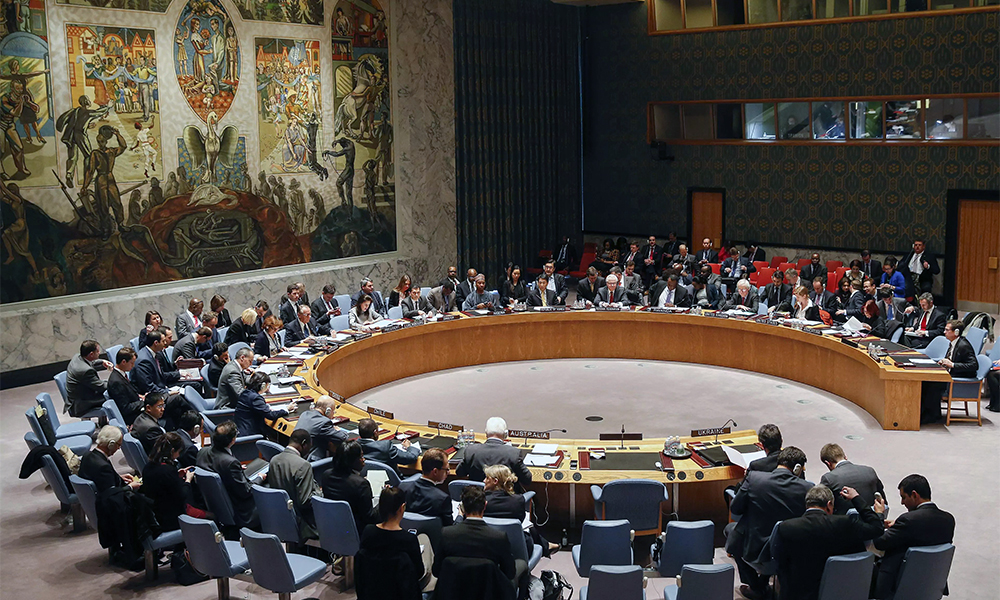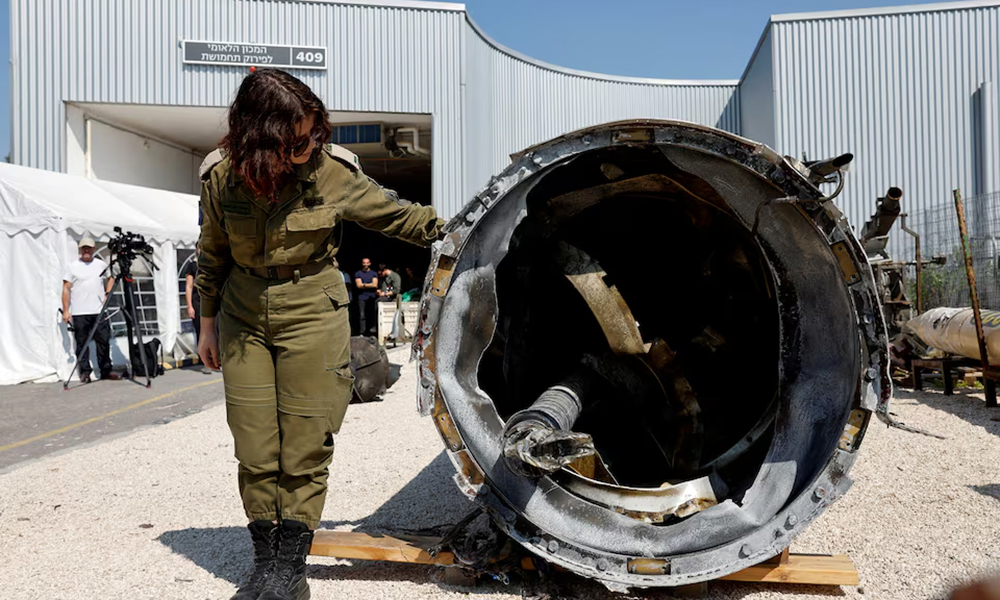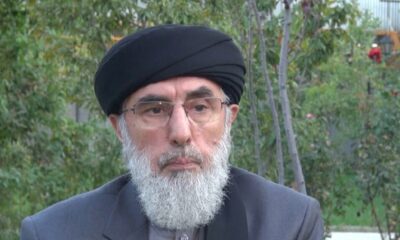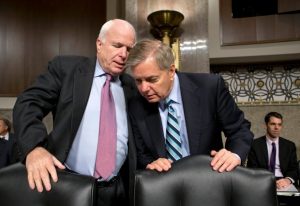World
John McCain and Lindsey Graham: Why we need more forces to end the stalemate in Afghanistan

On Sept. 11, 2001, al-Qaeda terrorists murdered 3,000 innocent civilians on American soil while under the sanctuary of the Taliban regime in Afghanistan. In response to that attack, U.S. and NATO forces deployed to Afghanistan to hunt down those responsible and ensure that Afghanistan would never again be a haven for terrorists. Since then, more than 2,000 Americans and more than 1,000 troops from our NATO allies have given their lives to that mission.
But after more than a decade-and-a-half of war, Gen. John W. Nicholson, commander of U.S. and coalition forces in Afghanistan, told the Senate Armed Services Committee last month that the war in Afghanistan is in a stalemate. President Trump and his administration must treat Afghanistan with the same urgency as the fight against the Islamic State, or this stalemate risks sliding into strategic failure.
This month, two simultaneous suicide attacks by the Taliban in Kabul killed at least 16 people and wounded more than 40. In northern Afghanistan, the Taliban overran another district. These setbacks came on the heels of disturbing losses across the country. Nicholson recently confirmed an inspector general report that the Afghan government controls or influences just 57 percent of the country’s districts, down from 72 percent just over a year ago.
Make no mistake: Afghans are fighting ferociously to defend their country from our common enemies. At the same time, we must recognize that the United States is still at war in Afghanistan against the terrorist enemies who attacked our nation on Sept. 11 and their ideological heirs. We must act accordingly.
Unfortunately, in recent years, we have tied the hands of our military in Afghanistan. Instead of trying to win, we have settled for just trying not to lose.
Time and time again, we saw troop withdrawals that seemed to have more to do with U.S. politics than conditions on the ground. The fixation with “force management levels” in Afghanistan, as well as in Iraq and Syria, seemed more about measuring troop counts than measuring success.
Authorities were also tightly restricted. Until last summer, our military was prohibited from targeting the Taliban, except in the most extreme circumstances, taking the pressure off the militants and allowing them to rebuild and reattack. Indeed, while we were fighting the Islamic State in Syria and Iraq, authorities in Afghanistan were so restrictive that it took an entire year before U.S. forces were finally given authority to strike the group’s fighters in Afghanistan.
While we have settled for a “don’t lose” strategy, the risk to U.S. and Afghan forces has only grown worse as the terrorist threat has intensified.
The Taliban has grown more lethal, expanded its territorial control and inflicted heavy casualties on Afghan forces. And it is reportedly doing so with help from Iran and Russia, who want nothing more than to see the United States fail in Afghanistan.
Al-Qaeda and the Haqqani network continue to threaten our interests in Afghanistan and beyond.
The Islamic State is trying to carve out another haven from which it can plan and execute attacks.
Moreover, U.S. efforts to confront these terrorist threats are continually frustrated by terrorist sanctuaries in Pakistan used to attack across its border and kill U.S. forces. Deteriorating relations between Pakistan and Afghanistan only make this problem more difficult.
President Trump has an important opportunity to turn the page, seize the initiative and take the fight to our terrorist enemies. To do this, the United States must align ends, ways and means in Afghanistan.
The U.S. objective in Afghanistan is the same now as it was in 2001: to prevent terrorists from using the country’s territory to attack our homeland.
We seek to achieve this objective by supporting Afghan governance and security institutions as they become capable of standing on their own, defending their country and defeating our common terrorist enemies with less U.S. assistance over time.
Doing this successfully requires the right number of people in the right places with the right authorities and the right capabilities. Our assessment, based on our conversations with commanders on the ground, is that a strategy for success will require additional U.S. and coalition forces and more flexible authorities. It will also require sustained support of the Afghan security forces as they develop key capabilities, especially offensive capabilities such as special operations forces and close air support needed to break the stalemate.
The United States has been at war in Afghanistan for nearly 16 years. Weary as some Americans may be of this long conflict, it is imperative that we see our mission through to success. We have seen what happens when we fail to be vigilant. The threats we face are real. And the stakes are high — not just for the lives of the Afghan people and the stability of the region, but for America’s national security.
By John McCain and Lindsey Graham – Originally published by the Washington Post
John McCain (R-Ariz.) is chairman of the Senate Armed Services Committee. Lindsey Graham (R-S.C.) is a member of the committee.

World
UN Security Council to vote Friday on Palestinian UN membership

The United Nations Security Council is scheduled to vote Friday on a Palestinian request for full U.N. membership, said diplomats, a move that Israel ally the United States is expected to block because it would effectively recognize a Palestinian state.
The 15-member council is due to vote at 3 pm Friday on a draft resolution that recommends to the 193-member U.N. General Assembly that “the State of Palestine be admitted to membership of the United Nations,” diplomats told Reuters.
A council resolution needs at least nine votes in favor and no vetoes by the U.S., Britain, France, Russia or China to pass. Diplomats say the measure could have the support of up to 13 council members, which would force the U.S. to use its veto.
Council member Algeria, which put forward the draft resolution, had requested a vote for Thursday afternoon to coincide with a Security Council meeting on the Middle East, which is due to be attended by several ministers.
The United States has said that establishing an independent Palestinian state should happen through direct negotiations between the parties and not at the United Nations.
“We do not see that doing a resolution in the Security Council will necessarily get us to a place where we can find … a two-state solution moving forward,” U.S. Ambassador to the U.N. Linda Thomas-Greenfield said on Wednesday.
The Palestinians are currently a non-member observer state, a de facto recognition of statehood that was granted by the 193-member U.N. General Assembly in 2012. But an application to become a full U.N. member needs to be approved by the Security Council and then at least two-thirds of the General Assembly.
The U.N. Security Council has long endorsed a vision of two states living side by side within secure and recognized borders. Palestinians want a state in the West Bank, east Jerusalem and Gaza Strip, all territory captured by Israel in 1967.
Little progress has been made on achieving Palestinian statehood since the signing of the Oslo Accords between Israel and the Palestinian Authority in the early 1990s.
World
EU leaders back new Iran sanctions after attack on Israel

European Union leaders decided on Wednesday to step up sanctions against Iran after Tehran’s missile and drone attack on Israel left world powers scrambling to prevent a wider conflict in the Middle East, Reuters reported.
The summit in Brussels is the first meeting of the EU’s 27 national leaders since Saturday’s attack, more than six months into the war between Israel and the Iran-backed Palestinian militant group Hamas.
Israel has signalled it will retaliate but has not said how. EU leaders condemned the Iranian attack, reaffirmed their commitment to Israel’s security and called on all sides to prevent more tensions, including in Lebanon.
“We feel it’s very important to do everything to isolate Iran,” said summit chairman Charles Michel, adding the new sanctions against the Islamic Republic would target companies involved in the production of drones and missiles.
German Chancellor Olaf Scholz said it was important that Israel “does not respond with a massive attack of its own.”
Italy spoke separately ahead of G7 talks in favour of sanctions against arms suppliers linked to the attack against Israel, as well as those behind attacks on ships in the Red Sea, read the report.
Iran launched its assault in response to an April 1 strike on its embassy in Damascus which it blamed on Israel. Tel Aviv started its broader military offensive in Gaza after Hamas’ deadly attack on Israel on Oct. 7.
ISRAEL AND UKRAINE
EU foreign ministers are due to continue the sanctions work on Monday as the United States and its Western allies hope new steps against Iran will help limit any Israeli retaliation.
The EU already has multiple programmes that target Iran for human rights abuses, the proliferation of weapons of mass destruction, and Tehran’s support for Russia’s war in Ukraine, Reuters reported.
Germany, France and several EU states are looking at expanding a scheme that seeks to curb the supply of Iranian drones to Russia to include the provision of missiles and cover deliveries to Iranian proxies in the Middle East.
Belgium backed introducing sanctions against Iran’s Revolutionary Guard Corps but Scholz said that required further legal checks. The bloc’s top diplomat has said that could only happen if a national authority in the EU found that the group had been involved in terrorist activity.
Analysts say Iran is unlikely to face more severe economic punishment because of worries about boosting oil prices and angering top buyer China.
With the Middle East capturing much of the EU’s attention, Ukraine’s President Volodymyr Zelenskiy appealed for more help in holding the line against Russia, which unleashed an invasion against its neighbour more than two years ago, read the report.
“Here in Ukraine, in our part of Europe, unfortunately, we do not have the level of defence that we all saw in the Middle East a few days ago,” Zelenskiy told the summit, after Israel and allies mostly shot down the incoming drones and missiles.
“It reflects our current key need – the need for air defence,” he said, according to an EU official, repeating his calls for speedier deliveries of the weapons and ammunition previously promised to Ukraine.
World
US and allies plan more Iran sanctions; Israel war cabinet to meet again

The U.S. and its allies planned fresh sanctions against Iran over its unprecedented attack on Israel, seeking to dissuade Israel from a major escalation as its war cabinet was set to meet for a third time on Wednesday to decide a response, Reuters reported.
While Saturday night’s attack caused no deaths and little damage thanks to the air defences and countermeasures of Israel and its allies, it has increased fears that violence rooted in the six-month-old Gaza war is spreading, with the risk of open war between long-time adversaries Iran and Israel.
Israel’s military chief of staff Herzi Halevi had promised Iran’s launch of more than 300 missiles, cruise missiles and drones at Israeli territory “will be met with a response”, but gave no details.
An Israeli government source said the war cabinet session scheduled for Tuesday had been put off until Wednesday, without elaborating, read the report.
Hoping to steer Israel away from massive retaliation, the U.S. and Europe flagged a toughening of economic and political sanctions against Iran.
The U.S. is planning to impose new sanctions targeting Iran’s missile and drone programme in the coming days and expects its allies will be following suit, National Security Advisor Jake Sullivan said in a statement on Tuesday.
Earlier, Treasury Secretary Janet Yellen said the U.S. would use sanctions, and work with allies, to keep disrupting Iran’s “malign and destabilising activity”.
She told a news conference in Washington all options to disrupt Iran’s “terrorist financing” were on the table, and she expected further sanctions against Iran to be announced soon.
European Union foreign policy chief Josep Borrell, speaking in Brussels after an emergency video conference of EU foreign ministers, said some member states had asked for sanctions against Iran to be expanded and that the bloc’s diplomatic service would begin working on the proposal.
Borrell said the proposal would expand a sanctions regime that seeks to curb the supply of Iranian drones to Russia so that it would also include the provision of missiles and could also cover deliveries to Iranian proxies in the Middle East.
Israeli Foreign Minister Israel Katz said he was “leading a diplomatic attack”, writing to 32 countries to ask them to place sanctions on Iran’s missile programme and follow Washington in proscribing its dominant military force, the Revolutionary Guard Corps, as a terrorist group, Reuters reported.
‘CALM HEADS’
Iran launched the attack in retaliation for an airstrike on its embassy compound in Damascus on April 1 attributed to Israel, but has signalled that it now deems the matter closed.
President Joe Biden told Israeli Prime Minister Benjamin Netanyahu at the weekend that the United States, Israel’s main protector, would not participate in an Israeli counter-strike.
British Prime Minister Rishi Sunak told Netanyahu in a call on Tuesday that escalation in the Middle East was in nobody’s interest and would only worsen insecurity in the region, so it was “a moment for calm heads to prevail”, Sunak’s office said.
Japan Foreign Minister Yoko Kamikawa “strongly urged Israel to exercise restraint” during a call with her Israeli counterpart Israel Kantz on Tuesday evening, according to a readout of the call issued by Japan’s foreign ministry.
The prospect of Israeli retaliation has alarmed many Iranians already enduring economic pain and tighter social and political controls since major protests in 2022-23, read the report.
Since the war in Gaza began in October, clashes have erupted between Israel and Iran-aligned groups based in Lebanon, Syria, Yemen and Iraq.
Israel said four of its soldiers were wounded hundreds of metres inside Lebanese territory overnight, the first known Israeli ground penetration into Lebanon since the Gaza war erupted, although it has regularly traded fire with the heavily armed Lebanese Hezbollah militia.
In Gaza itself, where more than 33,000 Palestinians have been killed in the Israeli offensive according to Gaza health ministry figures, Iran’s action drew applause.
Israel began its campaign against Hamas, the Iranian-backed Palestinian militant group that runs Gaza, after the militants attacked Israel on Oct. 7, killing 1,200 people and taking 253 hostages, by Israeli tallies.
-

 Sport5 days ago
Sport5 days agoACL fever grows as fixtures finalized
-

 Latest News5 days ago
Latest News5 days agoOver 50 people dead in traffic accidents over Eid
-

 Latest News5 days ago
Latest News5 days agoUS identifies Kabul airport suicide bomber
-

 Business5 days ago
Business5 days agoAfghanistan-Kazakhstan chamber of commerce opens in Herat
-

 World4 days ago
World4 days agoIsraeli military vows response to Iran attack as calls for restraint mount
-

 Sport3 days ago
Sport3 days agoATN secures exclusive rights to broadcast Paris 2024 Olympics
-

 Latest News4 days ago
Latest News4 days agoPakistani police give Afghans in Balochistan one day to leave
-

 Latest News4 days ago
Latest News4 days agoHekmatyar slams US for ‘occupying’ Afghanistan’s airspace

















